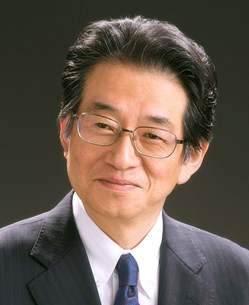Meeting
2018 ASCO Annual Meeting

Department of Translational Research and Developmental Therapeutics against Cancer, Yamaguchi University School of Medicine, Ube, Japan
Shoichi Hazama , Koji Tamada , Keiko Udaka , Yasunari Koki , Toshinari Uematsu , Hideki Arima , Tomomitsu Satoh , Shun Doi , Tomoya Miyakawa , Hiroto Matsui , Shinsuke Kanekiyo , Yukio Tokumitsu , Kazuhiko Sakamoto , Nobuaki Suzuki , Shigeru Takeda , Shigeru Yamamoto , Shigefumi Yoshino , Tomio Ueno , Hiroaki Nagano
Background: Based on the exploratory analysis of our previous studies of peptide vaccine, we concluded that the combination of adjuvants hLAG-3Ig + Poly-ICLC is essential for controlling negative immune checkpoints and enhancing CTLs induction to overcome the traditional peptide studies. Another issue with peptide vaccines is human leukocyte antigen (HLA) restriction. Hence, we developed novel multi-HLA-binding peptides derived from the tumor antigens, HSP70 and GPC3, and confirmed the high expression in many types of cancer. After the presentation at ASCO 2017, we expanded pts in recommended dose to confirm safety and explored biomarkers for efficacy. Methods: We identified HSP70- and GPC3-peptide that have high binding affinity to each of HLA-A2402, 0201, and 0206 by a binding prediction system (NEC Corporation). In this phase I study of a novel peptide cancer vaccine for metastatic solid cancer, the primary objective was to evaluate its safety and toxicity. Secondary objective was to examine the immune and clinical response, and also to confirm the recommendable dose. This study used a three-tiered dose-escalation strategy with 3 pts’ cohorts. In addition to the 3 scheduled cases, 8 more cases were added and 11 cases were enrolled at the recommended dose. Results: Seventeen HLA-A*24:02-, 02:01-, and 02:06-matched pts (esophagus (EC), 5; colon (CRC), 6; liver (HCC), 4; pancreas, 1; stomach, 1) were treated in this study. No severe adverse effects related to the treatment were encountered. Peptide-specific CTL induction to HSP70 and GPC3 was observed in 15 and 16 pts, respectively. We observed decreased tumor marker expression in 10 cases, and disease control was observed in 5 pts (18, 4, 3, 3, 2 M). OS rates in CRC, HCC, and EC were 80%, 100%, and 60% at 6M, and 60%, 75% and 0% at 12M, respectively. Low CD4+PD-1+ (p = 0.02) and low Treg Fraction II (p = 0.03) were the significant favorable biomarker for OS. Conclusions: The combination cancer vaccine therapy using multi-HLA-restricted peptides and hLAG-3Ig + Poly-ICLC was safe and effective for treating solid tumors. CD4+PD-1+ and Treg Fraction II were the significant biomarker for OS. Clinical trial information: 000020440.
Disclaimer
This material on this page is ©2024 American Society of Clinical Oncology, all rights reserved. Licensing available upon request. For more information, please contact licensing@asco.org
2018 ASCO Annual Meeting
Publication Only
Publication Only: Developmental Therapeutics—Immunotherapy
Developmental Therapeutics and Translational Research
Vaccines
000020440
J Clin Oncol 36, 2018 (suppl; abstr e15167)
10.1200/JCO.2018.36.15_suppl.e15167
e15167
Abstract Disclosures
2020 Gastrointestinal Cancers Symposium
First Author: Sadahisa Ogasawara
2024 ASCO Annual Meeting
First Author: Qiuji Wu
2023 ASCO Annual Meeting
First Author: Yang Zhang
2024 ASCO Gastrointestinal Cancers Symposium
First Author: Oluwadunni Eunice Emiloju